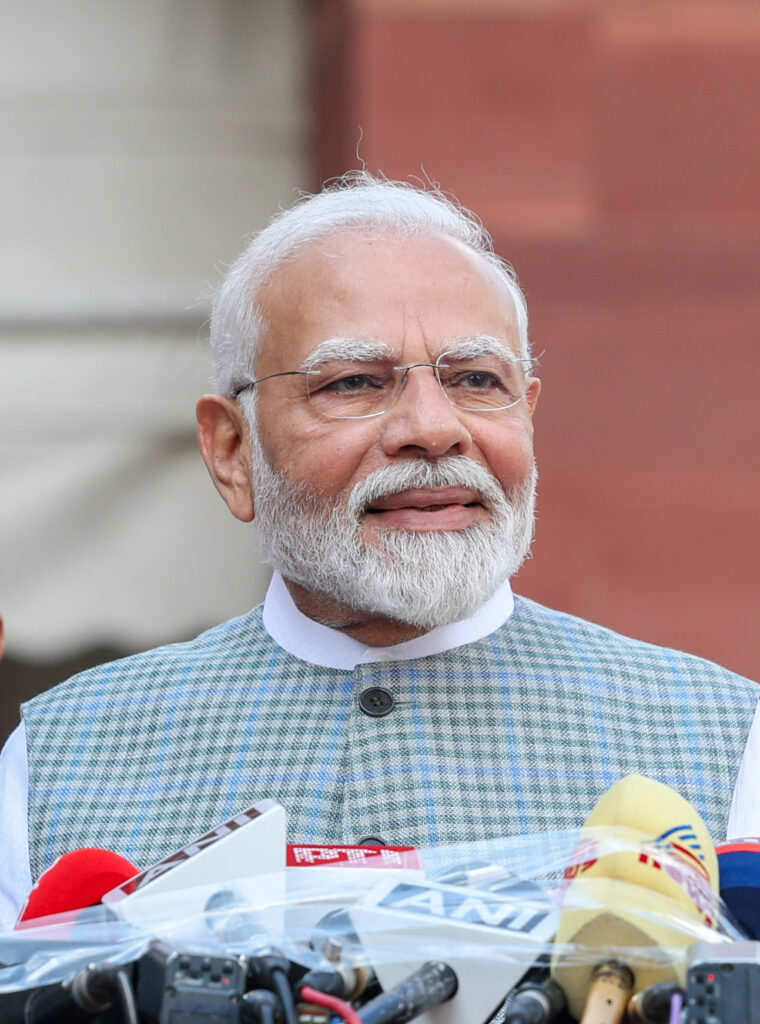Prime Minister Addresses Special Session of Parliament, Reflecting on 75 Years of India’s Journey

Prime Minister Narendra Modi delivered a poignant address during the Special Session of Parliament in Lok Sabha today, commemorating India’s 75-year parliamentary journey. The Special Session, spanning from September 18th to the 22nd, holds significant historical importance.
In his speech, Prime Minister Modi fondly reminisced about the Old Parliament Building, emphasizing its pivotal role in India’s legislative history. He acknowledged the building’s transformation from the Imperial Legislative Council under foreign rule to the Indian Parliament post-independence, highlighting the indomitable spirit and dedication of the Indian people that contributed to its development.

While acknowledging the transition to a new building, the Prime Minister stressed that the Old Parliament Building would continue to inspire future generations as a golden chapter in India’s democratic journey.
Modi spoke about the renewed confidence, achievements, and capabilities that have emerged in the dawn of the “Amrit Kaal.” He underscored India’s growing global prominence and the success of endeavors like Chandrayaan 3, attributing these achievements to the collective effort of 75 years of parliamentary history.
The Prime Minister extended gratitude to the scientists involved in Chandrayaan 3 and celebrated India’s diverse and inclusive success during its G20 presidency, particularly the inclusion of the African Union in the G20.
Highlighting India’s role as ‘Vishwa Mitra,’ Modi emphasized the importance of India’s values, derived from ancient wisdom, in fostering global friendships and unity.
The Prime Minister praised the inclusive atmosphere of the Parliament, which has consistently represented the aspirations of the people. He recognized the contributions of women parliamentarians and the changing composition of the House, becoming more inclusive over time.
Modi highlighted the sacrifices and dedication of public representatives, mentioning notable figures such as Shri Indrajit Gupta Ji and Ms. Chandrani Murmu. He noted the House’s unique quality of maintaining a sense of family, even during disagreements, and acknowledged members who continued their duties during the pandemic despite severe illnesses.
Reflecting on India’s early years of independence and the doubts about the nation’s viability, the Prime Minister credited the strength of Parliament for disproving those doubts.
Modi paid tribute to the Constituent Assembly’s work, the adoption of the Constitution, and the addresses of past Presidents, highlighting their role in building trust in Parliament.
He praised leaders from Pandit Nehru and Lal Bahadur Shastri to Atal Bihari Vajpayee and Manmohan Singh for providing direction to the nation. The Prime Minister remembered national icons like Sardar Vallabhbhai Patel, Ram Manohar Lohia, and Chandra Shekhar, who enriched parliamentary discussions.
Modi recalled moments of national pain, such as the loss of Prime Ministers Nehru Ji, Shastri Ji, and Indira Ji while in office.
The Prime Minister acknowledged the deft handling of the House by various Speakers, creating reference points in their decisions. He praised the contributions of the House staff and the dedication of journalists covering parliamentary proceedings.
Drawing parallels to a pilgrimage site, Modi stated that the echoes of 7500 representatives have transformed Parliament into a pilgrimage, even when discussions cease. He highlighted Parliament’s historical significance, where icons like Bhagat Singh and Battukeshwar Dutt left their mark.
The Prime Minister quoted Jawaharlal Nehru’s “Stroke of Midnight” speech, which continues to inspire every Indian. He emphasized the survival of India’s democracy, irrespective of changing governments and parties.
Modi recounted the visionary contributions of leaders like Baba Saheb Ambedkar, Charan Singh, and PV Narasimha Rao, who crafted essential policies for India’s development.
He touched upon significant events, including the wars of 1965 and Bangladesh’s independence, highlighting the role of Smt. Indira Gandhi. The Prime Minister also mentioned critical milestones, such as the reduction of the voting age and the adoption of new economic policies.
Modi lauded Parliament’s role in clearing long-pending historic decisions like Article 370, GST, OROP, and 10 percent reservation for the poor.
In conclusion, the Prime Minister expressed confidence that members would transition to the new building with enthusiasm. He thanked the Speaker for providing an opportunity to reminisce about the House’s historical moments.
This address marked a significant tribute to India’s democratic journey, showcasing the House’s pivotal role in shaping the nation’s destiny.




